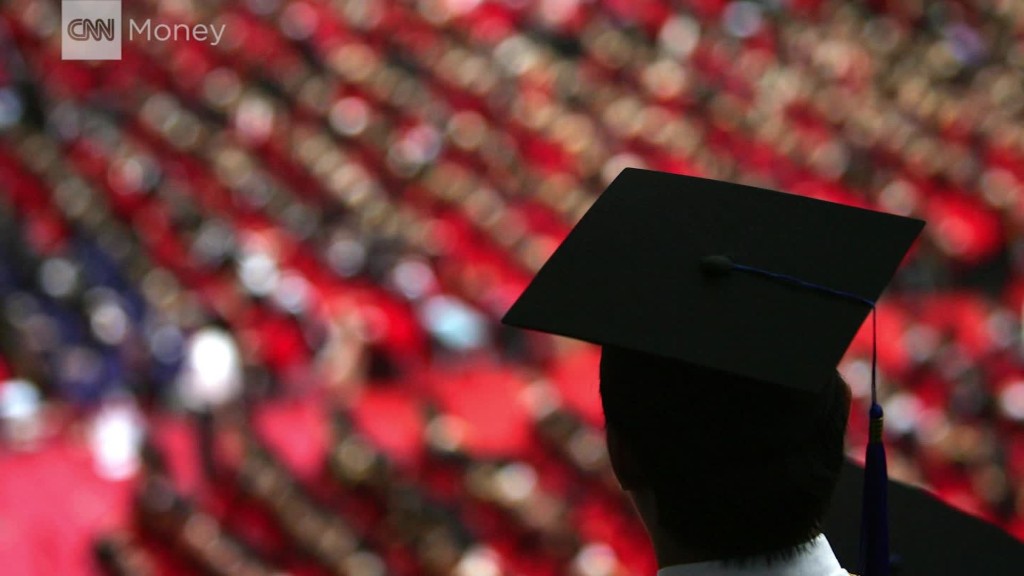
What if the government wiped away everyone's student debt?
Let's be clear. No lawmaker has proposed such a plan. But researchers at the Levy Economics Institute of Bard College say it's a proposal worth considering.
It's a "radical solution to the student debt crisis, but one that deserves serious attention, given the radical scope of the problem," wrote Marshall Steinbaum, one of the authors of the report, in a blog post.
There is currently $1.4 trillion of outstanding student loan debt in the US, held by about 44 million people.
Nearly 70% of college seniors at nonprofit schools left with some debt in 2015.
The researchers looked at what would happen if the government canceled all federal loans (the majority of student debt) and paid off all privately owned loans -— as a one-time policy.
Their economic models show that canceling student debt would lead to a boost in GDP by an average of $86 billion to $108 billion annually over the next 10 years. They also show that it would reduce the unemployment rate by about 0.3%.
Related: Yes, student debt is delaying homeownership
Meanwhile the cost of paying off $1.4 trillion of debt would have a "modest" effect on the deficit and inflation over the next 10 years, the report said.
In his post, Steinbaum addressed two possible criticisms: that eliminating student debt is inequitable because the largest balances are held by the highest-income borrowers, and that the debt isn't a significant drag on the economy to begin with, since a college degree generally leads to higher earnings.
But Steinbaum says that those critiques are "much less true than they are commonly believed."
Some critics of debt cancellation also worry that current and future borrowers could borrow even more, expecting their debt to be forgiven, too. The research did not account for a potential moral hazard, though the paper suggests that using public funds to make colleges tuition- or debt-free could help avert the problem.
Related: How they typical graduate student pays for school
While the biggest debts are held by those who go to graduate school and earn big salaries, like doctors and lawyers, student debt is increasingly held by a larger portion of the population as the cost of education has risen, Steinbaum said.
Erasing all student debt is ambitious. But forgiveness programs do exist for some federal loan borrowers. Those who work in the public sector may be eligible to have their remaining debt forgiven after 10 years of payments. Another program provides debt relief for some teachers. And those enrolled in an income-driven repayment program may be eligible for debt forgiveness after 20 or 25 years.
